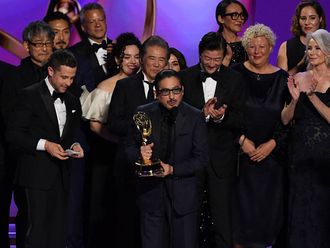Ambassador Maleeha Lodhi served as Pakistan's envoy to the United States (1993-96 and 1999-2002) and to the United Kingdom (2003-08). Earlier, she edited The News and The Muslim, two of her country's leading dailies, and was appointed by the UN Secretary-General to his advisory board for disarmament.
Lodhi taught at the London School of Economics, was a fellow at Harvard University and at the Woodrow Wilson Center in Washington DC, where she edited the volume under review. In 1994, Time magazine named her one of the hundred individuals who will help define the 21st century.
A Pakistani nationalist, Lodhi now regrets the depths to which her country has sunk. She dedicates the book to "the people of Pakistan who deserve better" — an introduction, in a strange way, to the present problems she goes on to address.
Needless to say, Lodhi is optimistic, and refuses to give up hope that, somehow, the realities of Pakistan — a democratic country that distanced itself from its founder's vision — will change. She foresees a day when competent leaders, who will place national interest above petty politics, will once again rule Islamabad. Towards that end, she asked some of Pakistan's brightest thinkers to rise to the occasion and not simply reiterate stale reportage. They do not disappoint as all genuinely focus on solutions.
Many ideas are addressed by experts here, but this review will focus on two key themes: militarisation and democratisation. Historian Ayesha Jalal's essay, The Past As Present, is a laser-sharp assessment of the problem, where the Tufts University professor deciphers how a largely inept civilian leadership, along with a violently ambitious army, failed to serve the nation.
She reminds readers how Saadat Hasan Manto, the renowned fiction writer, wrote in 1951 that proud Pakistanis were bewildered as they incredulously watched the United States arm the nascent republic to "counter the local bully on the block". "My country is poor", but Manto wondered, in the first of nine satirical letters to Uncle Sam, "why is it ignorant?" Manto knew the answer — to serve Washington and not Islamabad, but even more pertinent in Jalal's judicious reference was her observation that this question is relevant in 2011 as Pakistanis wonder about the consequences of American largesse to the Pakistani military.
Save for generous US support during emergencies (floods or earthquakes), what amounts to civilian assistance has been little compared to massive military aid ostensibly disbursed to fight "terrorism". That Pakistan has become a client state, a theme that is thoroughly assessed in this book, ought to surprise no one. Leading Pakistani analysts have identified obliterating this scourge as key — which is one of the book's positive features.
The second theme worthy of attention is democratisation, assessed by Akbar Ahmad, who teaches at the American University in Washington DC, and whose Why Jinnah Matters ought to be required reading in world capitals. Although Hollywood films shape most contemporary understandings of history, few recall today that Mohammad Ali Jinnah — who was portrayed as a beady-eyed leech in Richard Attenborough's Gandhi (1982) — was in fact a secularist.
In 1947, Pakistan's founder espoused a worldly vision for his country and was willing to accommodate both Islamic and non-Islamic beliefs. Above all else, Jinnah wanted everyone to be under the law in a state that was tolerant. Regrettably, his death in 1948, barely a year after independence, meant that few lieutenants were ready to implement his vision. Instead, alternative and far more religious views dominated the political scene, as men like Abu Al Ala'a Al Mawdudi and Hakimullah Mehsud — long before more extremist elements surfaced — articulated their own religiosities as salvation.
Various attempts to impose skewed interpretations of what passed for Islamic values have dominated the country's political agenda ever since, as military leaders successfully manipulated opposing groups through the Inter Services Intelligence. What is left of Jinnah's secularist vision today is caricature, which is truly tragic, as relations with India might have taken a different course and several wars averted.
There is a lot more in this thought-provoking book for those who are interested to gain a better understanding of tensions on the Indian subcontinent and to decode Pakistan's complex relationships with the Gulf region. Chapters on Pakistan's nuclear policies, its economy, and bureaucratic malaise, among others, are crammed with details that demand attention.
Lodhi's own assessments of what drove London and Washington to try to bring back Benazir Bhutto in 2007 are also useful, which confirm her contention that Pakistan has become a sorrowful rentier state that must shed this yoke. Ultimately, Lodhi hopes, and everyone wishes, that Pakistan truly becomes a "normal state" able to better look after its growing population's interests.
Dr Joseph A. Kéchichian is the author of the forthcoming Legal and Political Reforms in Saudi Arabia (2012).








